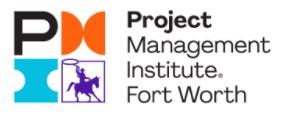The Rapid Evolution of Project Management: Key Insights for 2024
Author: Tristan Martinez
Project management continues advancing at a remarkable pace. As technology transforms businesses and volatile markets demand agility, project leaders must stay on top of emerging methodologies, skills, and tools shaping the field. What overarching insights indicate where project management is headed in 2024 and beyond?
Centralizing Change Management
The recently released Project Management Body of Knowledgement, PMBOK ®, Guide 7th Edition, reveals a growing emphasis on change management, with more than 30% more content on communications and stakeholder engagement compared ot the 6th Edition. As projects aim to deliver change across organizations, project managers are increasingly responsible for easing transitions. For more evidence on PMI’s commitment to change management, you can look no further than the fact that it took up more than 24 key sessions at the PMI Global Summit. Change management knowledge paired with soft skills like empathy and influence are now core PM competencies.
Harnessing AI and Automation
Artificial intelligence promises to transform project oversight. Although AI currently plays a limited role, its project management applications are rapidly expanding. AI can synthesize real-time status reports, allowing PMs to focus less on administrative work and more on strategies for results. It also enables advanced risk forecasting and automated responses when threats emerge. PMI offers a free AI fundamentals course guiding PMs to capitalize on these emerging capabilities, which you can find at:
https://www.pmi.org/shop/p-/elearning/generative-ai-overview-for-project-managers/el083
Centering DEI in Leadership
Diversity, equity, and inclusion shape far more than team composition. It encompasses how leaders empower marginalized voices, mitigate bias, and create psychologically safe environments where people feel valued. DEI directly impacts employee retention and performance. Our recent FWPMI speakers, Jessica Atkinson and Kuma Roberts helps PMs improve their awareness in this critical area. By following their LinkedIn pages and reviewing their websites,
https://wilbeffect.com/ and
https://arrowheadspeakers.com/kuma-roberts/, you can learn more about how to be an inclusive project manager and impactful leader.
The growing focus on these three trends together signal an evolution in the project manager's role. As AI shoulders more administrative burdens, PMs will need elevated stakeholder communication abilities to drive change adoption and guarantee intended ROI is achieved. Without recognizing marginalized influencers, buy-in and usage suffer regardless of technological capabilities. Ultimately, AI affords leaders more capacity to have empathy, earn trust, understand biases, and coach their organizations through transitions. Leaner workflows via automation combined with culturally intelligent leadership produces the stakeholder relationships essential for project implementations to become true organizational transformations rather than abandoned software. The project manager of tomorrow must leverage AI to focus less on tactical oversight and more on enabling people to believe in, contribute to, and champion initiatives transforming the status quo. The technology, methodologies and soft skills must converge for project success rates to improve in volatile times.
About the Author:
Tristan is an Organizational Design Consultant who specializes in Behavioral Analysis and Human-Centered Design Thinking. She holds an undergraduate degree in Organizational Development from the University of North Texas, and has earned multiple certifications, including: Project Management Professional, Data Analyst, and Prosci Change Practitioner.
Tristan transitioned out of the US Navy in 2020, after six years of service as a Hospital Corpsman. Her focus during the service was to develop the leadership capabilities of individuals and to foster a culture of transformational leadership that has influenced today's Naval Leaders. As Director of Communications for the Fort Worth PMI, Tristan partners across the local and national network to advocate for the power of the PMI Community and to develop the connections for Service to Project Management.
As a lifelong learner, Tristan believes that the more she learns, the more she realizes how much there is to know. She has a true dedication for helping organizations achieve meaningful transformation aligned with their strategic and business priorities in a way that is beneficial for their most valuable assets - their people.
|
 |





